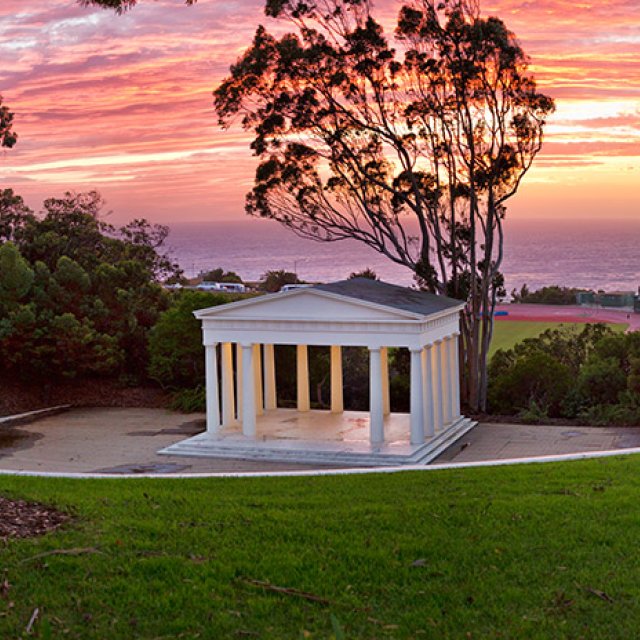
Dr. Elinor (Twyeffort) (00) Irish is a research fellow in physics at the University of St. Andrews in the U.K. While her title is straightforward, what she researches is quite complex.
“There is physics that explains how big things work, and then there is physics that explains how small things, like atoms, work,” Irish said. “Things act quite differently when they get small, and quantum physics, which is what I study, explains those behaviors.”
Irish says that typically, to study quantum physics, strict parameters must be in place. For example, in most cases, the study sample must remain isolated and in very cold temperatures to prevent contamination. However, about seven years ago, an exception was found. Physicists learned that some bacteria, specifically bacteria that are photosynthetic, behave quantum-mechanically despite not being in a controlled environment. This is where Irish’s research comes in to answer two significant questions: Does quantum physics make the photosynthesis process more efficient? And if so, how?
Based on studies of samples of these bacteria, primarily found on the bottom of lakes, Irish comes up with mathematical models to describe their behavior and how they effectively transfer energy during photosynthesis. Irish then uses these models to tell a story about what she has found to submit her research for journal publication.
Though the applications of her research are still a long way off, they are promising for the future of sustainable energy. The desired outcome of this research — understanding what makes the process of photosynthesis in these bacteria so efficient — may mean one day improving solar cells in hopes of relying more on sunlight for our electricity supply rather than fossil fuels.
Irish has been interested in quantum physics ever since one of her high school science teachers recommended some recreational reading on the subject. Immediately captivated, Irish attended PLNU as a physics major, after which she enrolled in the physics Ph.D. program at the University of Rochester in New York.
“When I went to graduate school, I was intimidated because I knew I would be going up against students from really prestigious schools,” she said. “But I quickly discovered that my educational background was just as good if not better than the other students. I was really impressed to discover that my physics degree from PLNU stacked up very well against those from universities across the country.”
Aside from the solid physics foundation she received, she also feels incredibly grateful for the other ways PLNU prepared her for her work — like her public speaking class that equipped her to travel and present her research at conferences around the world, or her creative writing class that has enabled her to effectively write concise, informative abstracts for her findings. It is because of her combined scientific and liberal arts background, Irish says, that she can take part in complex research projects and then effectively communicate her work to people both in and out of the science community.

The Viewpoint
PLNU's university publication, the Viewpoint, seeks to contribute relevant and vital stories that grapple with life's profound questions from a uniquely Christian perspective. Through features, profiles, and news updates, the Viewpoint highlights stories of university alumni, staff, faculty, and students who are pursuing who they are called to be.